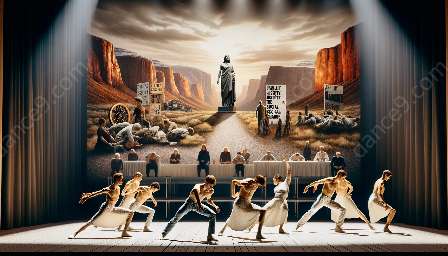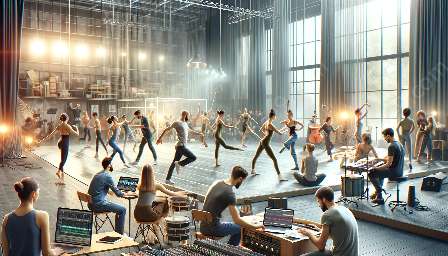Contemporary dance is a form of artistic expression that allows choreographers and dancers to explore intense emotional states through movement. In this context, emotionally charged choreography delves into the psychological implications of human emotions and experiences, creating a profound and compelling experience for both the performers and the audience.
The Intersection of Psychology and Choreography in Contemporary Dance
Contemporary dance has evolved to become a powerful medium for conveying complex emotional narratives. Choreographers often draw inspiration from psychological theories and concepts to infuse their work with deep emotional resonance. Through the manipulation of movement, space, and dynamics, choreographers can express a wide range of emotions, from joy and love to anger and sorrow, inviting the audience to engage with their own psychological responses.
Emotional Expression and Catharsis
The creation and performance of emotionally charged choreography in contemporary dance can serve as a cathartic release for both the dancers and the viewers. By embodying intense emotions through movement, dancers can tap into their own psychological landscapes, facilitating personal growth and self-discovery. Likewise, audience members may undergo a cathartic experience as they empathize with the dancers, processing their own emotions in response to the performance.
Embodied Cognition and Emotional Contagion
When witnessing emotionally charged choreography, individuals often experience a phenomenon known as embodied cognition, wherein the movements of the dancers evoke corresponding emotional responses within the observer's own body and mind. This emotional contagion creates a powerful connection between the performers and the audience, heightening the psychological impact of the choreography.
Emotion Regulation and Coping Mechanisms
Choreography in contemporary dance offers a platform for exploring and processing complex emotions, allowing both dancers and spectators to engage in emotion regulation and coping mechanisms. The act of portraying emotions through movement can facilitate a deeper understanding of one's own emotional landscape, providing a means of coping with internal struggles and fostering emotional resilience.
Empathy and Emotional Intelligence
Engaging with emotionally charged choreography can enhance empathy and emotional intelligence, enabling individuals to develop a greater awareness of their own emotions and those of others. Through contemporary dance, individuals have the opportunity to cultivate a more profound understanding of human psychology, fostering a more empathetic and interconnected society.
The Role of Contemporary Dance in Psychological Well-Being
Participating in emotionally charged choreography and experiencing such performances can contribute to overall psychological well-being. The deep emotional engagement inherent in contemporary dance offers an avenue for emotional expression, self-reflection, and connection with others, ultimately promoting psychological health and resilience.
Integration of Movement Therapy and Psychology
Contemporary dance and choreography intersect with the field of movement therapy, leveraging the expressive potential of movement to address psychological and emotional challenges. This integration demonstrates the far-reaching implications of emotionally charged choreography, as it becomes a tool for promoting mental health and well-being.
Artistic Exploration of Human Experience
Through emotionally charged choreography, contemporary dance presents a poignant exploration of the human experience, delving into the depths of human psychology and emotion. By embodying and expressing complex emotional states, dance becomes a mirror reflecting the intricacies of the human psyche, inviting contemplation and discourse.




























